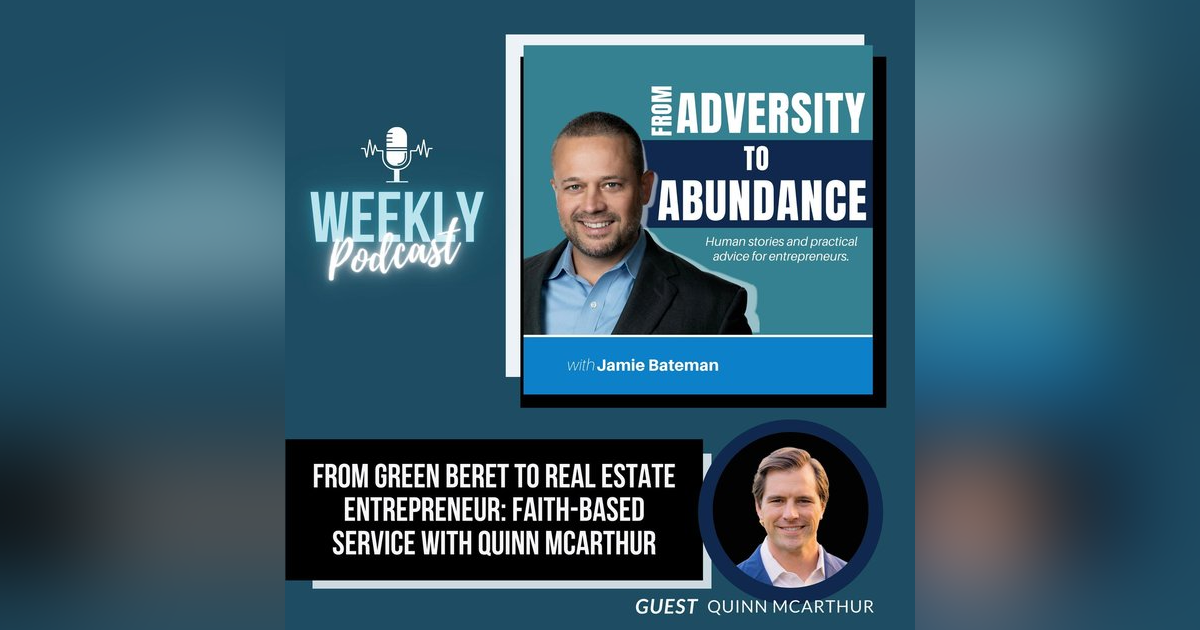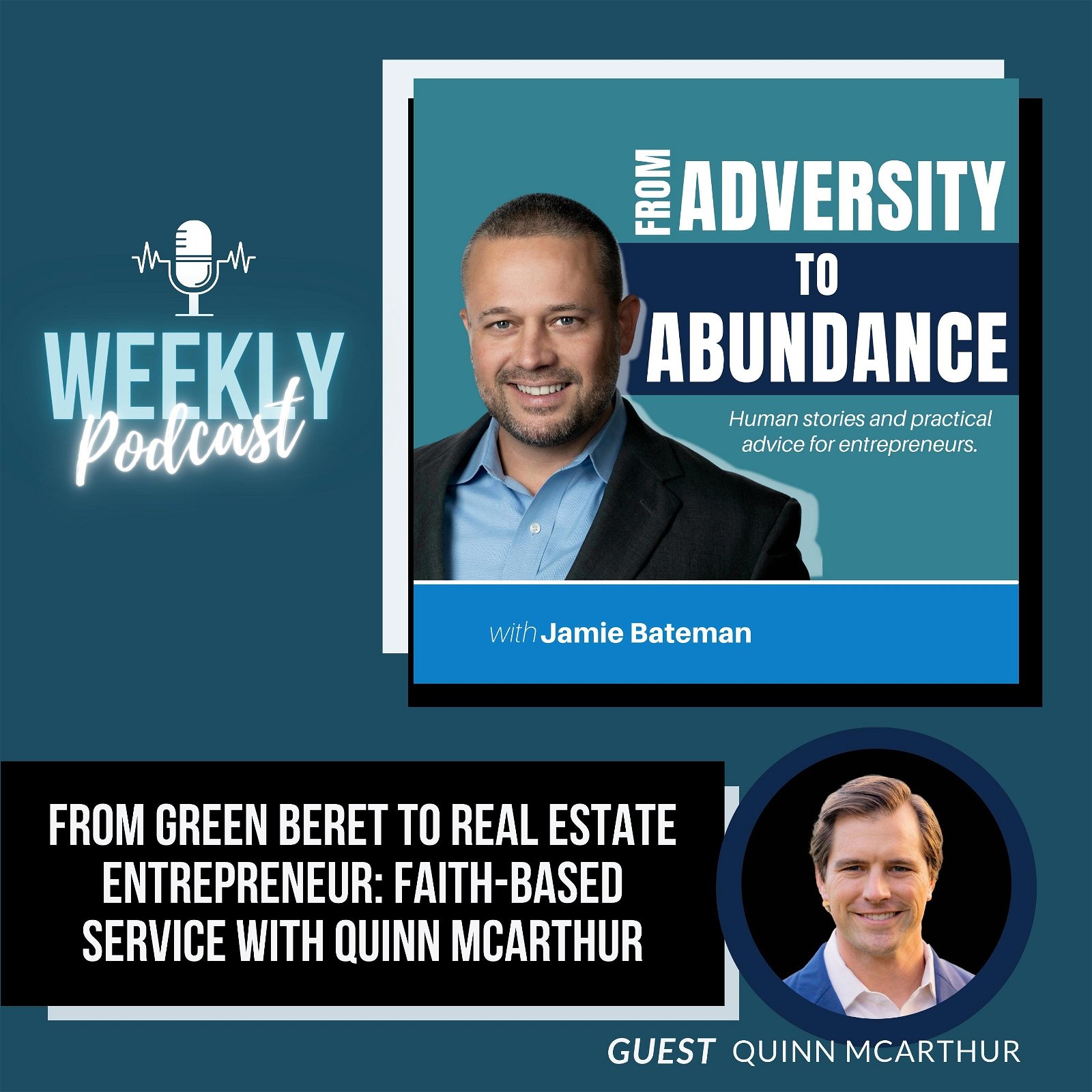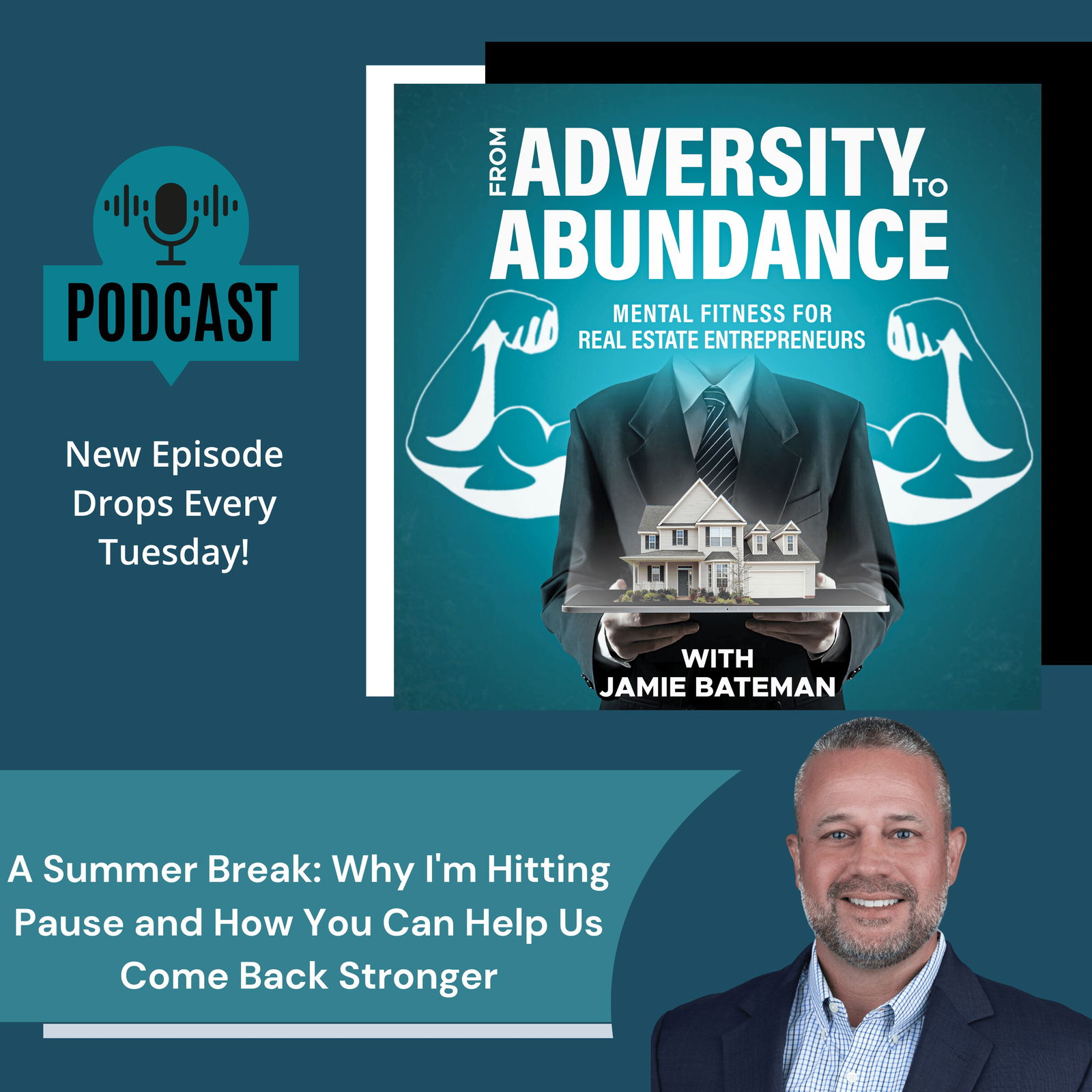From Green Beret to Real Estate Entrepreneur: Faith-Based Service with Quinn McArthur


Imagine a former Green Beret sharing the unexpected secret to successful real estate investing. While his military background brings discipline, it's his values and faith that drive his decisions. Learn how this unconventional approach leads to long-term success and discover the surprising twist that sets his strategy apart. Ready to uncover the hidden power behind values-driven investing? Stay tuned for the unexpected journey that will change the way you look at real estate.
My special guest is Quinn McArthur
Quinn McArthur, a former Green Beret in the US Army and a West Point graduate, brings a unique blend of military discipline and values-driven approach to real estate investing. After dedicating a decade to military service, Quinn pivoted towards real estate development and capital raising for diverse projects. As the co-founder of the Legacy Land Fund alongside Eric Sharaga, his commitment to faith, family, and adding value to others shapes his purpose-driven investment strategies. With a focus on serving others and making a meaningful impact, Quinn's transition from the military to the world of real estate offers valuable insights and a compelling story for the listeners of the podcast.
It's more than just the financial returns. It's really just kind of thinking through, it's the stewardship and the service piece as well. - Quinn McArthur
In this episode, you will be able to:
- Master real estate investing strategies for long-term success in wealth creation.
- Navigate career transitions with confidence and make informed decisions.
- Gain insights into the entrepreneurial journey and learn perseverance tips for success.
- Discover the impact of values-driven investing in real estate.
- Learn effective goal-setting and stewardship principles for financial growth.
Real Estate Investing Strategies
Quinn McArthur emphasizes the importance of dedicated research and due diligence in real estate investing. He advocates for the examination of potential partners' track records and execution abilities, as alignment in values and transparency are critical factors for success. Quinn's strategy showcases the significance of a meticulous and values-driven approach in real estate investments, leading to the cultivation of mutually beneficial partnerships and successful outcomes.
Books and Resources
Celebration of Discipline: The Path to Spiritual Growth
Connect with Quinn McArthur
WEBSITE: http://www.apexcapitalre.com
legacylandfund.com
EMAIL: info@legacylandfund.com
CONTACT: 770.301.5591
FACEBOOK: https://www.facebook.com/quinn.mcarthur.5
INSTAGRAM: https://www.instagram.com/quinnmcarthur/
LINKEDIN: https://www.linkedin.com/in/quinnmcarthur/
Haven Financial:
https://www.myfinancialhaven.com/jamiebateman/
ATTENTION:
Unlock the secrets to a transformative life with “From Adversity to Abundance: Inspiring stories of Mental, Physical and Financial Transformation”. Buy your copy now and embark on a journey from challenges to triumphs!
AMAZON: https://www.amazon.com/dp/B0CGTWJY1D?ref_=pe_3052080_397514860
Connect with us
WEBSITE: https://www.adversity2abundance.com
Leave us a rating or review: https://www.adversity2abundance.com/reviews/new/ or here
Got comments, feedback or suggestions? We’d love to hear it! https://www.adversity2abundance.com/contact/
Follow From Adversity to Abundance Podcast
FACEBOOK: https://www.facebook.com/profile.php?id=100089126144055
INSTAGRAM: https://www.instagram.com/adversitytoabundancepodcast/
LINKEDIN: https://www.linkedin.com/company/89949391/admin/feed/posts/
YOUTUBE: https://www.youtube.com/@FromAdversity2AbundancePodcast
Connect with Jamie
BOOK: From Adversity to Abundance: Inspiring Stories of Mental, Physical, and Financial Transformation
LINKEDIN: https://www.linkedin.com/in/jamie-bateman-5359a811/
TWITTER: https://twitter.com/batemanjames





